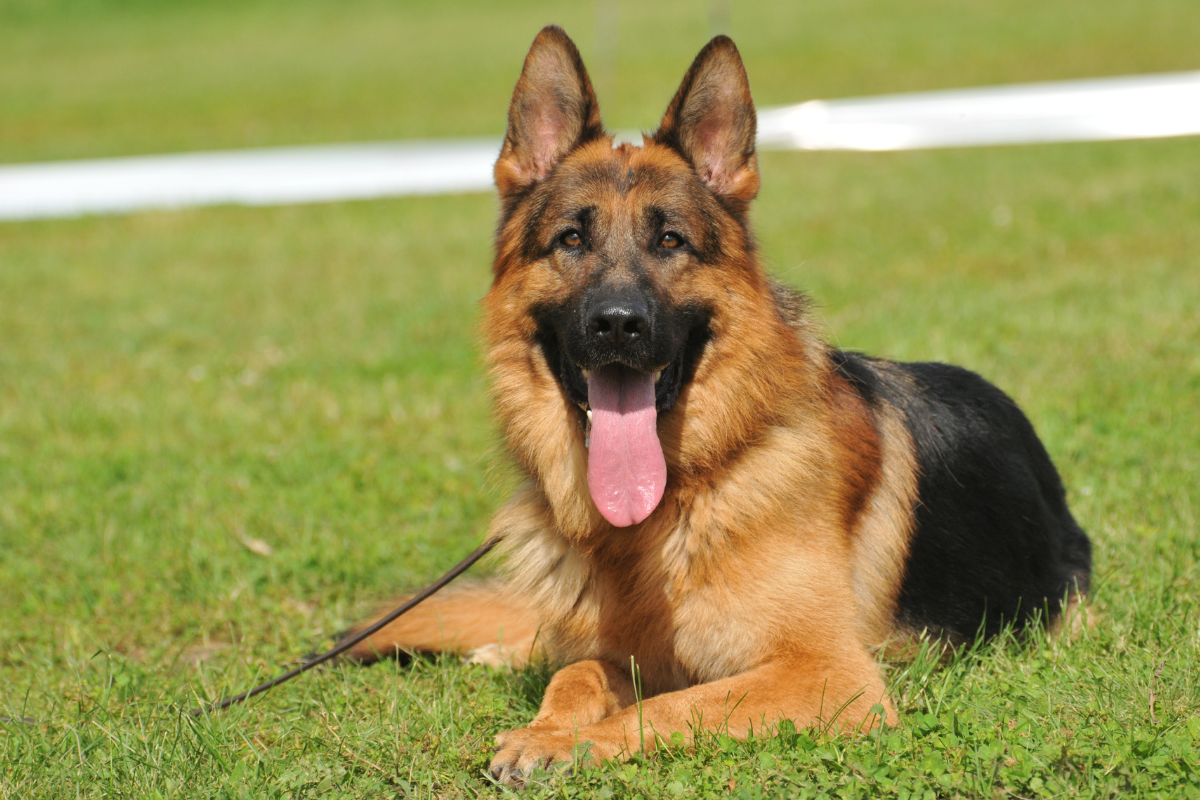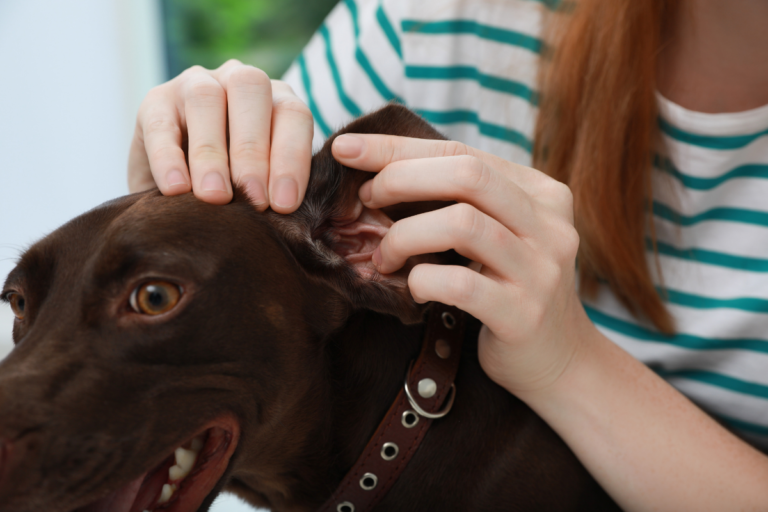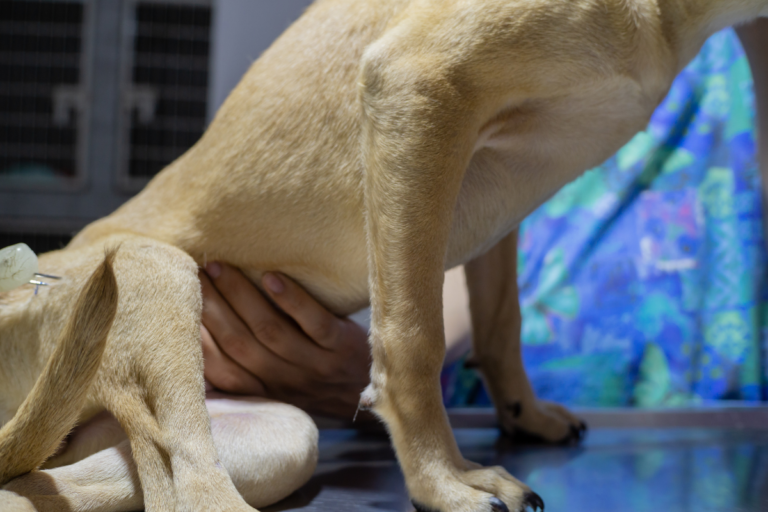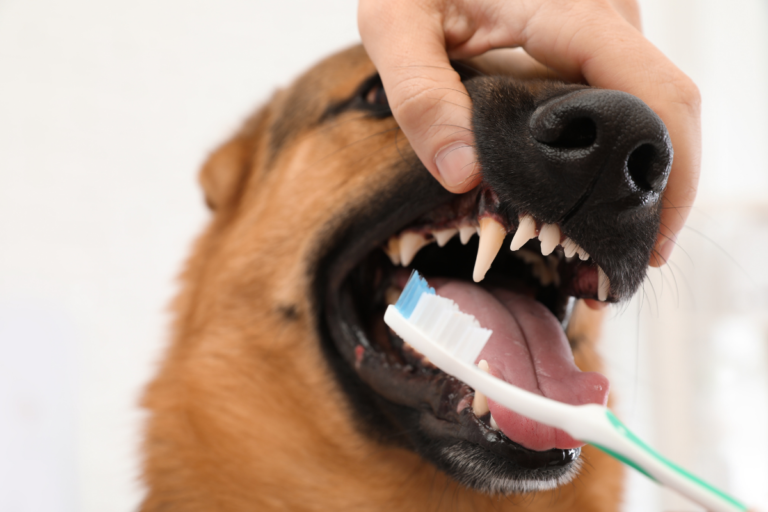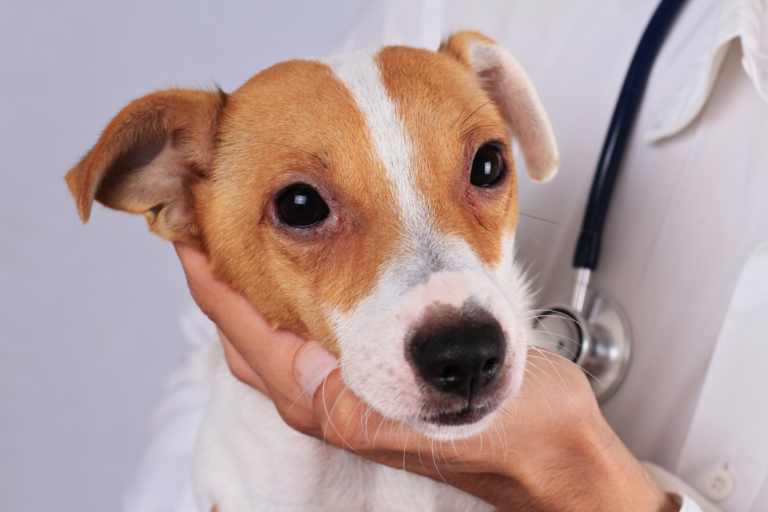Protect Our Best Pals: Key German Shepherd Health Problems Unveiled
Common Health Issues
Alright, folks, let’s talk about our furry pals, the German Shepherds. Just like humans, they’ve got their share of health quirks. As proud dog parents, spotting these hiccups early can make a world of difference for our four-legged buddies.
Hip Dysplasia
Now, hip dysplasia is sort of like the achy knees of the dog world and our German Shepherds seem to inherit it quite a bit. We’re talking about a wonky hip joint that acts up, putting Fido in some serious pain, making them limp around, and causing arthritis. Keeping up with vet visits, watching their weight like a hawk, and ensuring just the right amount of exercise keeps this gremlin at bay. But let’s not sugar coat it: when it gets bad, we’re looking at a surgery costing an arm and a leg—you’re looking at least $3,500 for each hip. Want the full scoop on handling hip dysplasia? Check out our deep dive on german shepherd hip dysplasia.
| Condition | Symptoms | Treatment Options | Cost |
|---|---|---|---|
| Hip Dysplasia | Pain, Lameness, Arthritis | Weight Watch, Surgery, Exercise | $3,500+ per hip |
Bloat (Gastric Dilatation-Volvulus)
Ever heard of bloat in dogs? It’s a real tummy twister—literally! When a German Shepherd’s stomach decides to play balloon, it fills with gas and twists strangely. This is a five-alarm emergency, folks, because things can go downhill fast. Look for tell-tale signs like retching, acting nauseous but not getting anything out, puffed-up tum, and goopy drool (Purina). Try breaking their meals down into smaller, bite-sized bits more often throughout the day to keep danger at bay (Imprimedicine). For more on bloat-busting, swing by our guide on bloat symptoms dog.
| Condition | Symptoms | Treatment Options | Preventive Measures |
|---|---|---|---|
| Bloat (GDV) | Retching, Vomiting, Swollen Belly, Drool Galore | Dash to Vet for Surgery | Smaller Meals, More Often |
Allergies
Let’s not forget allergies! Our Shepherds can break out into an itching frenzy, thanks to triggers like pollen, certain foods, or sneaky fleas. You’ll know it’s happening if Fluffy’s constantly scratching, showing off red patches, or developing scorching hot spots. It sounds like detective work, but getting to the bottom of their triggers is key. Think hypoallergenic chow or keeping fleas at bay as possible solutions.
For itchy woes from skin allergies, you might find our articles on dog gum disease and symptoms of fleas in dogs handy.
| Condition | Symptoms | Treatment Options | Note |
|---|---|---|---|
| Allergies | Scratching, Red Skin, Hot Spots | Tailored Diet, Flea Fixes | Reduce Allergen Exposure |
Understanding what ails German Shepherds means more tail wagging days for them. Keep your eyes peeled for these signs and have regular vet chats to nip any health issues early. More tips await you in our write-ups on dog diseases and healthiest dog breeds.
Cancer Concerns
Hemangiosarcoma
Let’s chat about hemangiosarcoma. It’s a nasty piece of work that German Shepherds often have to deal with. This sneaky cancer crashes the party, starting in blood vessels and creeping up on spots like the spleen, liver, and heart. Fast and furious, it sneaks up before you’ve even had your morning coffee. Regular vet check-ups? Think of them as our defense squad. Lethargy, swelling, or a sudden collapse are red flags to watch for. See your vet regularly—proactive is the name of the game. (Imprimedicine).
Osteosarcoma
Osteosarcoma—now this one’s a heavyweight, especially in larger breeds like our beloved German Shepherds. This bone cancer loves to pick on the limbs, causing all sorts of trouble like lameness and swelling. The trick is catching it early—time is pawfully (pun intended) precious here. Surgery and chemotherapy are on the table as potential lifesavers. Keep an eagle eye out for limping or swelling. If you spot it, don’t waste time—call your vet (Imprimedicine).
Mammary Cancer
Now, onto mammary cancer—especially a concern for those female Shepherds who haven’t been spayed. But don’t stress—spaying is a game-changer. Catch those tumors early, and with some surgical magic, it’s a whole new ballgame. Early vet visits? They’re not just routine—they’re critical. It’s all about proactive pet parenting, which pays off big time down the road (Imprimedicine).
Feeling like a canine health detective? You can snoop around more on doggy dilemmas in our articles on dog diseases and symptoms and dog diseases.
| Cancer Type | Common Affected Areas | Symptoms | Treatment |
|---|---|---|---|
| Hemangiosarcoma | Spleen, liver, heart | Lethargy, swelling, sudden collapse | Surgery, chemotherapy |
| Osteosarcoma | Limbs | Lameness, swelling | Surgery, chemotherapy, radiation |
| Mammary Cancer | Mammary glands | Lumps in mammary tissue | Spaying, surgery, possibly chemotherapy |
Keeping up with vet visits, knowing the signs, and getting ahead of things is key in handling these German Shepherd health problems. If prevention and treatment strategies are what you’re after, you’ll find what you need in our sections on preventive measures and treatment options.
Specific Conditions
Caring for German Shepherds means keeping tabs on certain health challenges they often face. Two of the big ones are a nasty nerve issue and a tummy trouble that’s all too common. Knowing about these problems means we can love them better and longer.
Degenerative Myelopathy
Degenerative myelopathy (DM) is a frustrating disease for many German Shepherds. It’s a nerve problem that creeps up and can lead to losing the ability to move their back legs. No magic fix here, but physical therapy might give them some pep, helping them stay on their paws as long as possible. Support and TLC go a long way to keeping them comfy and content even when things get tough.
| Symptom | Description |
|---|---|
| Hind leg weakness | Trouble moving around |
| Muscle shrinkage | Muscles wasting away |
| Can’t hold it | Bathroom accidents |
If you want the scoop on managing DM, take a peek at our handy section on tips for straightening curly hair. Yeah, we know, hair is different, but hey, knowledge is power, right?
Pancreatic Insufficiency
This one’s all about the gut. When the pancreas doesn’t do its job, our furry pals can’t soak up the good stuff from their chow, leading to a hungry belly and sad fur.
Common signs of pancreatic issues are:
- Drastic weight drop
- Shabby coat
- Runny poop
- Always hungry
Figuring this all out usually means some tests, and a fix often involves popping enzyme powders in their meals to help them digest properly. Good grub keeps them healthy and bouncy.
| Symptom | Solution |
|---|---|
| Dropping pounds | Enzyme boost |
| Coat looks rough | Better nutrition |
| Runny accidents | Diet tweaks |
| Eats constantly | Regular vet visits |
For pointers on feeding your pooch right, swing by our dog nutrition guide for some tricks.
Knowing about these hiccups lets us stay a step ahead, ensuring our pooches live their best lives. Seeing the vet regularly and catching things early make a world of difference. For more on doggie dramas, check out our dog diseases and symptoms section.
Preventive Measures
Protecting our German Shepherd buddies from health hiccups is super important and pretty simple. Keeping an eye on their food and regular vet checks keeps them wagging happily and healthily.
Regular Vet Visits
Regular visits to the vet are like pit stops for early problem fixing. Our German Shepherds might deal with things like hip trouble, itchy spots, or tummy grumps. Checking in with the vet regularly helps us catch these kinds of issues before they make a mess of things.
| Check-up Timeline | Stuff to Do |
|---|---|
| Every 6 months | Get a once-over, check those pounds, update vaccinations |
| Yearly | Check blood, pee, teeth, and overall health vibes |
Staying ahead of health scares keeps our furry pals in top shape. Curious about other pup concerns? We’ve got info on dog diseases and symptoms and bloat symptoms dog.
Good Eats
Good food is a big deal for keeping our clever and lively German Shepherds zipping around. They need a solid diet to keep their energy up and motors running. Snag some handy tips from Timberwolf on what they need munch-wise.
The diet for these furballs should be packed with protein and healthy bits like vitamins. PetCareRx says they need 18%-22% protein and between 1,200 and 2,100 calories, depending on how much they’re zooming around.
| What They Need | Daily Munching Goals |
|---|---|
| Protein | 18%-22% of the daily bite |
| Calories | 1,200 – 2,100 (depending on zoomies) |
| Fats | Includes good fats for health |
| Carbs | Balanced for go-power |
| Vitamins and Minerals | Keeps them shining bright |
Some Shepherds might need special foods or vitamins, especially if they’re dealing with stuff like dog heart disease or kidney issues.
With healthy chow and regular vet visits, we can dodge those pesky german shepherd health issues. We get to keep our four-legged pals living their best lives, full of belly rubs and tail wags!
Treatment Options
If you’re worried about your loyal German Shepherd’s health, don’t fret. We’ve got a few common ways to tackle those pesky issues that might pop up. We’re gonna dive into two biggies: medicine and going under the knife.
Medication
For German Shepherds, medicines can be a lifesaver in keeping them healthy and comfortable. Take hip dysplasia, for example, which around 20% of these pups deal with. Medicines here can really ease the ache and bring down the swelling (PetMD).
Some common go-to meds are:
- NSAIDs: These work great at calming inflammation and making pain less of a bother.
- Pain Relievers: Extra help to keep your buddy comfy.
- Joint Supplements: Packed with stuff like glucosamine and chondroitin to amp up those creaky joints.
And when it comes to allergies, things like antihistamines and a bit of steroid TLC can really help stop the itching and puffiness. And don’t overlook gastrointestinal woes like bloat, which might need quick meds or an immediate trip to the vet (PetMD).
It’s super important to stick close to the vet’s advice and tweak those meds as needed. Our handy guide on dog diseases and symptoms sheds light on other issues that might need a bit of medical love.
Surgery
Sometimes, popping a pill just won’t cut it, and surgery steps in as the hero of the day. Hip dysplasia, for instance, might need surgical help if nothing else does the trick. Be ready, though—surgery like this can set you back $3,500 per hip (ManyPets).
| Condition | Surgical Help | Cost Guess |
|---|---|---|
| Hip Dysplasia | Hip Swap | $3,500+ per hip |
| Bloat | Tummy Tuck (Gastropexy) | $400 – $6,000 |
| Bad Allergies | Skin Scramble | $500 – $1,000 |
When bloat strikes, it’s a rush to fix that tummy twist. A surgical gastropexy could prevent future scares, reducing your pup’s risk (ManyPets).
We know the price tag on these surgeries is no joke. Having pet insurance or a stash for emergencies makes it a whole lot easier. For the deets on how regular vet visits can cut costs over time, swing by our section on regular veterinary check-ups.
The name of the game is thinking ahead, keeping a close eye, and acting fast to keep our German Shepherd pals in top-notch shape. Work closely with your vet to pick the best route for your dog’s health. For more scoop, check out our pieces on related health issues like bloat symptoms in dogs and dog diabetes symptoms.
Lifestyle Management
Taking good care of our German Shepherds is essential for keeping them in tip-top shape. Just like us, they need exercise and a healthy diet to stay happy and feel great.
Exercise Plan
Keeping our German Shepherds active is key to their happiness and health. Trust us, they love a good run or a lively game! With their endless energy, it’s crucial they have a regular routine to keep them both physically fit and mentally sharp.
Here’s how we can keep them smiling:
- Daily Walks: Aim for about an hour on foot with them each day. It’s not just exercise for them, it’s bonding time.
- Playtime: Bring out their favorite toys for games like fetch or tug-of-war for 20 minutes. This is their version of a laugh!
- Mental Stimulation: Spice things up with puzzle toys or new tricks. Keeps their brains buzzing.
- Agility Exercises: Try activities like agility courses and flyball. It’s fun for them and they’ll sleep like a baby after.
Don’t forget, they need to stay hydrated. Make sure they’re drinking enough—about an ounce of water for every pound they weigh. Fresh water at all times keeps them feeling their best!
Weight Management
Keeping a healthy weight is another piece of the puzzle in caring for our German Shepherd pals. A trip to the vet now and then, along with balanced exercise and diet, helps manage any weight hiccups.
Here’s a quick calorie guide based on how active they are:
| Weight (lbs) | Chill Mode (Calories) | Active Mode (Calories) |
|---|---|---|
| 60 | 1,272 | 1,740 |
| 75 | 1,460 | 2,000 |
| 90 | 1,540 | 2,100 |
Calories info from PetCareRx source
For those Shepherds dealing with joint issues like hip dysplasia, trimming a few calories can make a world of difference. Less weight means joints get a break, making them more comfortable overall.
By matching a good diet with the right amount of exercise, we set our German Shepherds up for a happy, healthy life. Don’t miss our articles on handling bloat in dogs and tips for haircare—random but useful!
